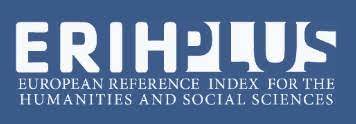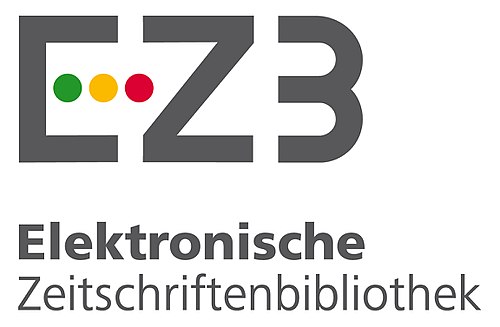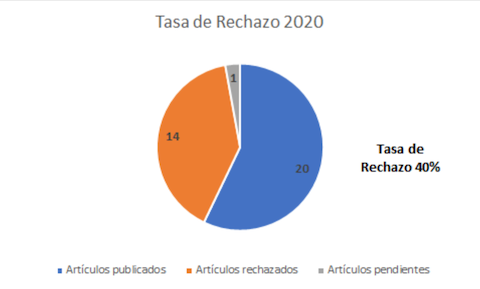Geopolitical challenges and new dilemmas for industrial policies
DOI:
https://doi.org/10.18667/cienciaypoderaereo.759Keywords:
Policies, State, industrialization, geopolitics, technology, managementAbstract
This paper is inserted in the subject of new technical and productive processes in the light of different national strategies to promote their growth in manufacturing and society. In this framework, the objective of the paper is to discuss the possibilities of new public policies for the development of new digital technologies in the current global situation. Emphasizing the possibilities of positioning Latin America from a digital transformation based on the development and training of skills and talents.
To achieve this objective, the paper summarizes the socioeconomic challenges imposed by the phenomenon of increasing digitization, its benefits and obstacles, and the responses adopted by different industrialized and emerging countries to promote the advancement of digital technologies and their techno-productive and social incorporation. Secondly, the paper reviews the critical facts of the current situation that determine options for digital transformation at the global level: post-pandemic scenarios, geopolitical repositionings influenced by Russia's invasion of Ukraine and the strategies of industrialized countries in search of global technological leadership.
The paper concludes that the current situation of economic and political crisis and uncertainty makes it impossible to foresee future paths for the incorporation of new digital technologies. In the search for global technological leadership, industrialized countries adopt new advanced technologies (not only digital ones), encouraging the private sectors to assume increasing risks of assimilation of these technologies and advance in new institutional and regulatory schemes. In this scenario, the challenge for Latin American countries lies in locating technological niches where they can insert themselves by supporting the training of talent and capabilities in the economy and society to boost the adoption of new technologies through the coordinated action of different groups in society, business and the State.
Downloads
References
Alcántara, M. (2021). De la fatiga al agotamiento democrático en América Latina. Revista Comercio Exterior. 25 de noviembre de 2021. https://www.politicaexterior.com/de-la-fatiga-al-agotamiento-democratico-en-america-latina/
Bär, K., Herbert-Hansen, Z. N. L. y Khalid, W. (2018). Consider-ing Industry 4.0 aspects in the supply chain for an sme. Production Engineering, 12(6), 747-758. https://doi.org/10.1007/s11740-018-0851-y
Brettel, M., Klein, M. y Friederichsen, N. (2016). The relevance of manufacturing flexibility in the context of Industry 4.0. Procedia CIRP, 41, 105-110. https://doi.org/10.1016/j.procir.2015.12.047
Brynjolfsson, E. y McAfee, A. (2016). The second machine age: Work, progress, and prosperity in a time of brilliant technologies. W.W. Norton.
Butollo, F. (2020). Digitalization and the geographies of production: Towards reshoring or global fragmentation? Competition & Change, 25(2). https://doi.org/10.1177/1024529420918160
Carmona, R., Amato Neto, J. y Ascúa, R. (2020). Industria 4.0 en empresas manufactureras del Brasil. Publicaciones de la Cepal. https://repositorio.cepal.org/handle/11362/46389
Casalet, M. (2018). La digitalización industrial: un camino hacia la gobernanza colaborativa. Estudios de casos. Publicaciones de la Cepal. https://www.cepal.org/es/publicaciones/44266-la-digitalizacion-industrial-un-camino-la-gobernanza-colaborativa-estudios-casos
Casalet, M. (2020). El futuro incierto de la digitalización en México: ¿podremos despegar? Economía: Teoría y Práctica, (spe5), 45-68. https://doi.org/10.24275/etypuam/ne/e052020/casalet
Casalet, M. y Stezano, F. (2021). The progress of digitalization in Mexico: Effects on the institutional structure. International Journal of Business Innovation and Research, 24(3), 339-363. https://doi.org/10.1504/ijbir.2020.10024956
Fondo Monetario Internacional (fmi). (2021). World Economic Outlook. Perspectivas de la Economía Mundial. fmi.
Goos, M., Arntz, M., Zierahn, U., Gregory, T., Carretero, S., González, I. y Jonkers, K. (2019). The impact of technological innovation on the future of work (Paper Series on Labour, Education and Technology No. 3). European Commission. https://joint-research-centre.ec.europa.eu/system/files/2019-07/jrc117212.pdf
Gorecky, D., Khamis, M. y Mura, K. (2017). Introduction and establishment of virtual training in the factory of the future. International Journal of Computer Integrated Manufacturing, 30(1), 182-190. https://doi.org/10.1080/0951192X.2015.1067918
Grosman, N., Braude, H., Rovira, S. y Patiño, A. (2021). Hecho en América Latina. Fabricación inteligente y una nueva esperanza de industrialización en la región. Publicaciones de la Cepal. https://repositorio.cepal.org/bitstream/handle/11362/47567/S2100504_es.pdf?isAllowed=y&sequence=1
Grundke, R., Jamet, S., Kalamova, M. y Squicciarini, M. (2017). Having the right mix: The role of skill bundles for comparative advantage and industry performance in GVCs. oecd. https://doi.org/10.1787/892a4787-en
Grzegorczyk, M., Mariniello, M., Nurski, L. y Schraepen, T. (2021, 9 de junio). Blending the physical and virtual: A hybrid model for the future of work. Bruegel. https://www.bruegel.org/2021/06/hybrid-work/
Guo, H., Yang, Z., Huang, R. y Guo, A. (2020). The digitalization and public crisis responses of small and medium enterprises: Implications from a covid-19 survey. Frontiers of Business Research in China, 14(1). https://doi.org/10.1186/s11782-020-00087-1
Hagebölling, D. (2022, 12 de abril). The geopolitical struggle for technology leadership. Internationale Politik Quarterly. https://ipquarterly.com/en/geopolitical-struggle-technology-leadership
Innerarity, D. (2021, 2 de septiembre). La sociedad de las crisis. El País. https://elpais.com/opinion/2021-09-02/la-sociedad-de-las-crisis.html
Kagermann, H., Lukas, W.-D. y Wolfgang, W. (2011). Indus-trie 4.0: Mit dem Internet der Dinge auf dem Weg zur 4. Industriellen Revolution. VDI Nachrichten, 13(1), 2-3.
Kang, H. S., Lee, J. Y., Choi, S., Kim, H., Park, J. H., Son, J. Y., Kim, B. H. y Noh, S. D. (2016). Smart manufacturing: Past research, present findings, and future directions. International Journal of Precision Engineering and Manu-facturing-Green Technology, 3(1), 111-128. https://doi.org/10.1007/s40684-016-0015-5
Laroca, N. (2019). Tras cuatro años, Brasil decretó la creación del Plan Nacional de IoT. Blog TeleSemana. https://www.telesemana.com/blog/2019/06/27/tras-cuatro-anos-brasil-decreto-la-creacion-del-plan-nacional-de-iot/
Lee, J., Kao, H.-A. y Yang, S. (2014). Service innovation and smart analytics for Industry 4.0 and Big Data environ-ment. Procedia CIRP, 16, 3-8. https://doi.org/10.1016/j.procir.2014.02.001
Maggi, C., Ramos Maldonado, M. y Vergara Guerra, R. (2020). Adopción de tecnologías digitales 4.0 por parte de pequeñas y medianas empresas manufactureras en la Región del Biobío (Chile). Publicaciones de la Cepal.https://repositorio.cepal.org/handle/11362/46387
Motta, J.-M. y Hernán-Ascua, R. (2019). Industria 4.0 en mipymes manufactureras de la Argentina. Publicaciones de la Cepal. https://www.cepal.org/es/publicaciones/45033-in-dustria-40-mipymes-manufactureras-la-argentina
Muhuri, P. K., Shukla, A. K. y Abraham, A. (2019). Industry 4.0: A bibliometric analysis and detailed overview. Engineering Applications of Artificial Intelligence, 78, 218-235. https://doi.org/10.1016/j.engappai.2018.11.007
North, K., Aramburu, N. y Lorenzo, O. J. (2019). Promoting digitally enabled growth in smes: A framework proposal. Journal of Enterprise Information Management, 33(1), 238-262. https://doi.org/10.1108/JEIM-04-2019-0103
Organización para la Cooperación y el Desarrollo Económicos (Ocde), Comisión Económica para América Latina y el Caribe (Cepal) y Corporación Andina de Fomento (caf). (2016). Perspectivas económicas de América Latina 2017: juventud, competencias y emprendimiento. oecd Publi-shing. http://dx.doi.org/10.1787/leo-2017-es
Organización para la Cooperación y el Desarrollo Económicos (Ocde), Comisión Económica para América Latina y el Caribe (Cepal) y Corporación Andina de Fomento (caf). (2021). Perspectivas económicas de América Latina 2021: Avanzando juntos hacia una mejor recuperación. oecd Publishing. https://www.oecd-ilibrary.org/development/perspectivas-economicas-de-america-latina-2021_2958a75d-es
Organization for Economic Cooperation and Development (oecd). (2019). Measuring the digital transformation: A roadmap for the future. oecd Publishing. https://www.oecd-ilibrary.org/science-and-technology/measuring-the-digital-transformation_9789264311992-en
Organization for Economic Cooperation and Development (oecd). (2022). Economic Outlook, Interim Report March 2022: Economic and social impacts and policy implications of the war in Ukraine. oecd Publishing. https://www.oecd-ilibrary.org/economics/oecd-economic-outlook/volume-2022/issue-2_4181d61b-en
Paikin, Z. y Gros, D. (2022, 7 de junio). ¿La guerra en Ucrania fortalecerá a la Unión Europea? Política Exterior. https://www.politicaexterior.com/la-guerra-de-putin-en-ucrania-hara-mas-fuerte-a-la-ue/
Rizzi, A., Fariza, I. y Zafra, M. (2022, 1 de mayo). Cómo la gue-rra de Putin está precipitando una revolución energética global. El País. https://elpais.com/economia/2022-05-01/como-la-guerra-de-putin-esta-precipitando-una-revolucion-energetica-global.html
Roblek, V., Meško, M. y Krapež, A. (2016). A complex view of Industry 4.0. SAGE Open, 6(2). https://doi.org/10.1177/2158244016653987
Rodrik, D. (2022, 19 de mayo). De las cenizas de la hiperglobalización podría surgir una mejor globalización. Política Exterior. https://www.politicaexterior.com/de-las-cenizas-de-la-hiperglobalizacion-podria-surgir-una-mejor-globalizacion/
Shafik, M. (2021). What we owe each other. Princeton University Press. https://press.princeton.edu/books/hardcover/9780691204451/what-we-owe-each-other https://doi.org/10.2307/j.ctv17nmzkg
Stiglitz, J. (2022, 4 de junio). Acertar con la desglobalización. El País. https://elpais.com/economia/negocios/2022-06-05/acertar-con-la-desglobalizacion.html
Sturgeon, T. J. (2019). Upgrading strategies for the digital economy. Strategic Management Society, 11, 34-57. https://doi.org/10.1002/gsj.1364
Ulas, D. (2019). Digital transformation process and smes. Procedia Computer Science, 158, 662-671. https://doi.org/10.1016/j.procs.2019.09.101
Urrea, M. (2020, 4 de octubre). La ciencia como derecho. El País. https://elpais.com/opinion/2020-10-04/la-ciencia-como-derecho.html
u.s. Department of State. (2022, 26 de mayo). The Administration's approach to the People's Republic of China. Speech by Antony J. Blinken, Secretary of State. https://www.state.gov/the-administrations-approach-to-the-peoples-republic-of-china
Verhoef, P. C., Broekhuizen, T., Bart, Y., Bhattacharya, A., Qi Dong, J., Fabian, N. y Haenlein, M. (2021). Digital trans-formation: A multidisciplinary reflection and research agenda. Journal of Business Research, 122, 889-901. https://doi.org/10.1016/j.jbusres.2019.09.022
Warner, K. S. R. y Wäger, M. (2019). Building dynamic capabilities for digital transformation: An ongoing process of strategic renewal. Long Range Planning, 52(3), 326-349. https://doi.org/10.1016/j.lrp.2018.12.001
Xu, L. D., Xu, E. L. y Li, L. (2018). Industry 4.0: State of the art and future trends. International Journal of Production Research, 56(8), 2941-2962. https://doi.org/10.1080/00207543.2018.1444806
Downloads
Published
Issue
Section
Categories
License
Copyright (c) 2022 Escuela de Postgrados de la Fuerza Aérea Colombiana

This work is licensed under a Creative Commons Attribution 4.0 International License.
Assignment of Copyrights
Authors assign Ciencia y Poder Aéreo journal the exclusive rights (reproduction, distribution, public communication, and transformation) to exploit and commercialize their work, in whole or in part, in all the formats and modalities of present or future exploitation, in all languages, throughout the life of the work and throughout the world.
All contents published in Ciencia y Poder Aéreo journal are licensed under a Creative Commons Attribution 4.0 International License, whose complete information is available at http://creativecommons.org/licenses/by/4.0/
Under the terms of this license, users are free to download, print, extract, archive, distribute and publicly communicate the content of articles, provided that proper credit is granted to authors and Ciencia y Poder Aéreo, scientific journal of the Graduate School of the Colombian Air Force. Except when otherwise indicated, this site and its contents are licensed under a Creative Commons Attribution 4.0 International License.
For other uses not considered under this license it is required to contact the Director or the Editor of the journal at the e-mail address cienciaypoderaereo1@gmail.com.
The Graduate School of the Colombian Air Force and this publication are not responsible for the concepts expressed in the articles, including the metadata or the affiliation stated by authors. This is the full responsibility of the authors.






















